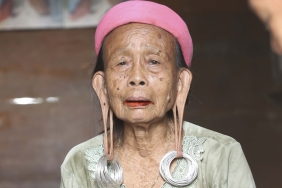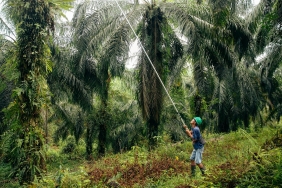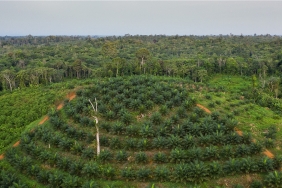INDONESIA EXPOSURE VISIT 1: WWF-INDONESIA & WWF-INDIA STEPS IN PROMOTING SUSTAINABLE PALM OIL
The sustainable palm oil industry is a growing industry in India. Through the HSBC Asia Sustainable Palm Oil Links (ASPOL) program, WWF-India and WWF-Indonesia are working together to promote the use of sustainable palm oil in India and Indonesia, by encouraging cooperation between palm oil industry stakeholders in India and Indonesia. To encourage and promote sustainable palm oil practices in India, on November 21-25, 2023, WWF-India in collaboration with WWF-Indonesia, carried out a series of activities by inviting industry players from India consisting of oil palm farmers, the private sector, and the government as a policy maker. During the activities that took place in Jakarta and Riau, WWF-India, and WWF-Indonesia met with several parties, namely the Indonesian Palm Oil Producers Association (GAPKI), Apical Group, and the Ministry of Agriculture of the Republic of Indonesia (Kementan RI).
The series of visits opened with a meeting between the WWF-India delegation and GAPKI. The meeting was held at Jakarta's Pulau Dua Restaurant to discuss how GAPKI as an association can encourage its members consisting of palm oil entrepreneurs to practice sustainable palm oil and also how GAPKI can better represent its members through policy advocacy that benefits the market demand for palm oil products.
With Eddy Martono, Chairman of GAPKI, Lolita Bangun, Deputy Secretary General of GAPKI, and their staff, the delegation from WWF-India discussed the regulation and market structure in Indonesia, and how Indonesia manages efficiency and conflicts related to refusal and plantation management.
To illustrate the situation in Indonesia, Eddy said that to become a member of GAPKI, companies must have a minimum land ownership of 250 hectares and a minimum of 2 hectares for oil palm smallholders. Some of the other topics that were also discussed were barriers related to eco-labeling on product packaging, the gap between certified sustainable palm oil (CSPO) and conventional palm oil, and public awareness of CSPO products, In response to this discussion Apical elaborated that they have used certification to generate efficiencies in their production system at all levels, Monitoring risks in the supply chain by continuously engaging palm oil farmers as an important part of the supply chain.
Towards the end of the series, the activity continued with a visit and discussion with the Director of Processing and Marketing of Plantation Products of the Indonesian Ministry of Agriculture. This meeting discussed the palm oil industry in Indonesia, such as how the Indonesian government's policies in processing land and palm oil products, policies related to exports abroad,
Certified Sustainable Palm Oil (CSPO) is a certification given to palm oil products that are produced sustainably with due regard to environmental, social, and economic aspects. RSPO. (2023, September 20). RSPO certification. Roundtable on Sustainable Palm Oil (RSPO). https://rspo.org/as-an-organisation/certification/. Policy issued by the Ministry of Agriculture of the Republic of Indonesia and is mandatory for oil palm plantation businesses in implementing sustainable oil palm plantation practices, based on: BPDPKS. (2021, October 9). Plantation Certification System Kelapa Sawit Berkelanjutan Indonesia (ISPO). https://www.bpdp.or.id/pengenalan-sistem-sertifikasi-kelapa-sawit-berkelanjutan-indonesia-ispox





